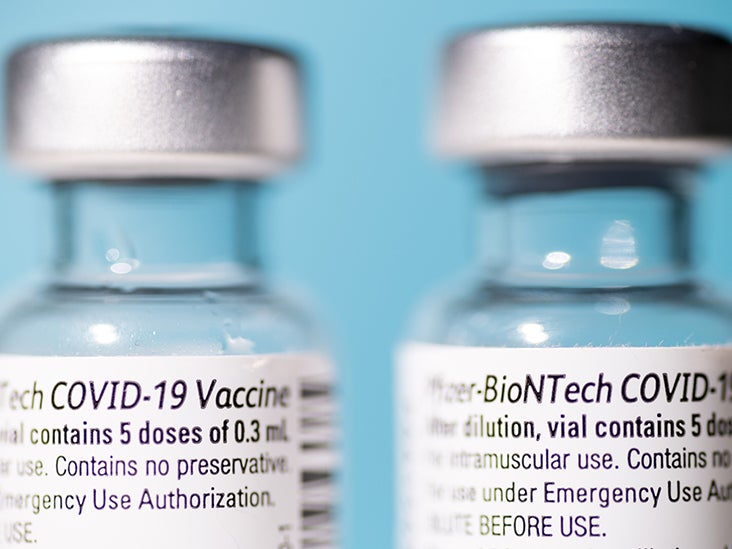
[ad_1]

- Recent studies confirm that mRNA vaccines are safe and offer a high degree of protection against COVID-19.
- However, leaked emails show that there were doubts last year about the first commercial batches of the Pfizer-BioNTech mRNA vaccine.
- The emails reveal that the European Medicines Agency (EMA) has raised concerns with Pfizer that the vaccine contained lower levels of intact mRNA molecules than expected.
- The company resolved the issue to the satisfaction of the EMA and regulatory agencies in the United States and Canada.
It is increasingly clear that immunization programs are already protecting some of the most vulnerable people from COVID-19, reducing the number of serious infections and preventing deaths.
While clinical trials in 2020 showed mRNA vaccines to be safe and effective, several recent studies suggest that they also provide a high degree of protection in the “real world”.
For example, a study conducted by researchers in the UK, which has not yet been peer reviewed, found that a single dose of the Pfizer-BioNTech vaccine is up to 79, 3% effective in reducing the risk of hospitalization with COVID-19 in adults over 80 years old.
Another study in the UK estimates the vaccine’s effectiveness at 89% from 14 days after the second injection. This research has not yet been peer reviewed.
In the United States, a 2021 study, which has not yet been peer reviewed, found that two doses of Pfizer vaccine or another mRNA vaccine made by Moderna were effective at 88.7% to prevent SARS-CoV-2 infection in adults.
It is therefore surprising to learn that in November 2020, the EMA raised concerns that the proposed commercial lots of Pfizer vaccine did not contain as many intact mRNA molecules as expected.
Each mRNA molecule in a vaccine is a genetic model that provides instructions for making a single viral protein.
When human cells take in mRNA, they use it to make millions of copies of the protein. These are harmless fragments of the virus, but they elicit an immune response that protects a person against future infection with the whole virus.
However, RNA molecules break down easily, which is why mRNA must be stored at very low temperatures. To further stabilize mRNA in vaccines, manufacturers encapsulate the molecules in tiny drops of fat called lipid nanoparticles.
“[T]he complete and intact mRNA molecule is essential for its efficacy as a vaccine, ”wrote Daan JA Crommelin, professor of biopharmaceuticals at the University of Utrecht in the Netherlands, and colleagues at the Journal of Pharmaceutical Sciences in December 2020.
They noted that even minor degradation anywhere along the length of the mRNA strand can slow or prevent the cell from properly making the viral protein.
Internal emails reveal that as of November 2020, the EMA was concerned that the Pfizer vaccine batches offered for commercial use contained less intact mRNA than previous batches intended for clinical trials.
Only about 55% of the mRNA molecules in these first commercial batches remained intact.
The EMA’s doubts only emerged following a cyberattack on the agency’s computer system in December 2020.
Unknown people sent the leaked emails to several journalists, including The BMJ, and the newspaper has now published an investigation into the agency’s concerns.
Pfizer appears to have answered all questions raised by the EMA, which cleared the vaccine on December 21, 2020.
According to one of the leaked emails, dated November 25, 2020, an undisclosed source in the United States had given the agency positive news: “Latest batches indicate% intact RNA is back to around 70%. -75%, which leaves us cautiously optimistic. this additional data could solve the problem. “
BMJ report that the EMA, Food and Drug Administration (FDA) and Health Canada worked together during the approval process and applied common criteria.
Health Canada said BMJ that Pfizer had investigated the “root cause” of the problem with the commercial batches.
“[C]adjustments have been made in their processes to ensure that integrity has been improved and brought into line with what has been seen for the clinical trial batches, ”said the EMA.
Health Canada further revealed that the three medical agencies subsequently concluded that “there was no concern with the integrity of the RNA or any other product specification.”
While regulators are convinced of the safety and efficacy of all mRNA vaccines currently in use, questions remain as to the criteria they use during the approval process for this relatively new technology.
When BMJ approached manufacturers and several national regulators for comment, none would disclose what percentage of intact mRNA molecules they consider acceptable.
The FDA, EMA and Health Canada all told the newspaper that specific details on the eligibility criteria are confidential.
The EMA stressed that the amounts of protein that a shortened mRNA strand could potentially produce “would be too low to constitute a safety risk.”
The agency also pointed out that Pfizer had addressed their concerns about the amount of intact mRNA in the vaccine.
The article notes: “Each batch of vaccine is tested by the official drug control laboratory – the [Paul-Ehrlich-Institut] in Germany – before the final product is released. As a result, the quality of all vaccine doses placed on the market in Europe has been tested twice to ensure compliance with specifications agreed with regulatory authorities. “
For live updates on the latest developments regarding the novel coronavirus and COVID-19, click here.
We have selected the related items based on the quality of the products and list the pros and cons of each to help you determine which one will work best for you. We partner with some of the companies that sell these products, which means Healthline UK and our partners may receive a portion of the income if you make a purchase using one or more of the links above.
[ad_2]
Source link